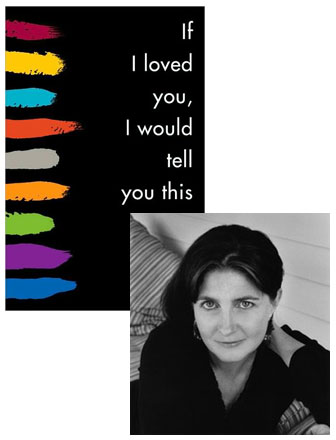Robin Black & the Heart of “A Stone Woman”

In her guest essay, Robin Black recalls an early teacher’s description of her stories as “domestic angst,” and how she took it at the time as a minimization of her work. But when you read If I Loved You, I Would Tell You This, you come to both the accuracy of that brief phrase and the strengths it implies. Many of Black’s stories test the stress points of family relationships—husbands and wives, parents and children, brothers and sisters—to the extreme, exerting pressures from within and without, and the results are emotionally raw and all too plausible. But, as she explains here, Black found inspiration for the persuasive realism of her most powerful stories in a fantastical source…
“At first, she did not think of stones.” So begins A.S. Byatt’s “A Stone Woman,” the story of a middle-aged daughter whose grief over her mother’s death transforms her into a being of myriad crystals, taking her from animal to mineral. From my very earliest reading, “A Stone Woman” entered my consciousness like news I had been waiting to hear. It became mine, a touchstone of sorts, in the way certain stories do for us all, which initially puzzled me because I haven’t ever been particularly attracted to magical stories. In fact, it’s fair to say that pretty much as soon as trees start talking or shoes begin walking on their own, I’m apt to tune out, more pushed away than swept away. Yet this story of transformation, with its evocation of Icelandic mythology and utter disregard for the prosaic rules of reality, seemed to have something, something essential, to tell me about my own work.
Trying to describe why you’re in love with a story is like trying to describe why you’re in love with anything, or anyone. In the end—says the woman who just claimed she doesn’t much like magic—there’s a magic that can’t and arguably shouldn’t be dissected. But maybe at the heart of all romances is the sensation of being able to be oneself, the vision of being loved as the person you think you are.
26 July 2010 | selling shorts |
Book Breakthrough: Interviews and Workshops
Recently, I exchanged emails with Debra Eckerling of Write On Online for a Q&A about Beatrice and writing, where she invited me to talk about some of the most common mistakes writers make. Taking a cue from Merlin Mann, I mentioned the importance of actually writing rather than simply calling yourself a writer, but then I also touched upon the need to understand the business side of writing, including the marketing, and in particular the potential advantages of using social media: “You need readers,” I said, “and as wonderful as it would be for people to just discover you over and over again by happy accident, it doesn’t work that way very often. You need to be out there where your potential readers are, get to know them, and let them get to know you.”
I’m going to be talking along similar lines next week at the Book Breakthrough Workshop, which is being held on July 29-31 here in New York City. My friends Janet Goldstein and Liz Marshall, who both have extensive experience helping authors (especially nonfiction writers) refine their message and build up their audiences, have put together a great lineup of guest speakers, and I’m delighted to be able to give a short presentation during the portion of the workshop that focuses on connecting with potential readers. The specific focus of my talk is going to be book trailers, and the ways we should be thinking about what makes them succeed, rather than just hoping for a gazillion views. The other speakers should be pretty amazing, too, so if you’re in the New York area, and you’re serious about wanting a career as a nonfiction writer, this should be a worthwhile experience.
23 July 2010 | events, interviews |

 Our Endless and Proper Work is my new book with Belt Publishing about starting (and sticking to) a productive writing practice.
Our Endless and Proper Work is my new book with Belt Publishing about starting (and sticking to) a productive writing practice. 
